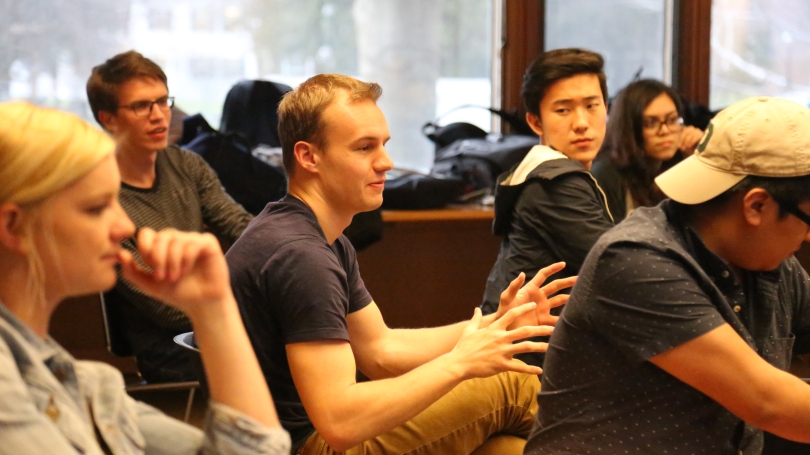
- Public Policy
- Leadership
- Funding
- News & Events
- About the Center
Back to Top Nav
Back to Top Nav
Back to Top Nav
Back to Top Nav
I really appreciated the session with Gama Perruci. We began by tracing the shift that has occurred on a global scale. As corporations began occupying territory and establishing territory in multiple nations (hence multinational corporations), the boundaries between states became more permeable. Multinational corporations began to harness more power as they negotiated land and territory with different countries. We discussed, however, that there is a gradual shift that has taken place. The 21st century has seen the rise of technology that has radically changed the way that people communicate. The most popular form of communication fifteen years ago was to send a letter through snail-mail, which could take days to arrive. Now, a quick Facebook message takes just seconds.
We discussed the interesting implications that the rise in communication has had, and what it could mean for the future. The power of communication and the lower barrier of access to information has done a lot of good. Individuals have become much more aware of issues and have begun to feel more empowered. We talked about the capacity that technology has to bring us together, and how the increased accessibility of information can show us common issues that we face as people. It has the power to motivate us to address the critical issues and to work together to find solutions. At the same time, however, technology has the power to be destructive and to induce fear and even hatred of other people. Going forward, we need to find ways to harness this technology for good.
The mission of the Rocky Program is to build leaders who will be effective in this changing world, and to prepare leaders to lead within a global context. One of the themes that I’ve experienced in the program is that in order to be an effective leader we must be willing to engage with each other and step outside of our limited perspective. It requires us to honestly explore the ways that we are different, while finding common ground and celebrating our humanity. I believe this can be exceptionally difficult (stepping outside of my own worldview is usually difficult) but I will continue to learn what this means and how I can do this better. We cannot solve these issues alone and it is critical that we continue to find ways to work together to address the complex issues that we face. The last question Dr. Perruci asked was “Do you think that we can do it? Do you think it’s possible?” I think as leaders we have to believe that change is not only possible but necessary, and that it is all of our responsibility to continue to find solutions and to believe that we can change the world for the better.
-Submitted by Sutton Lowry '16, spring 2016 RGLP participant